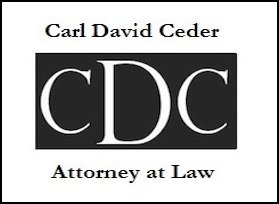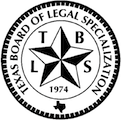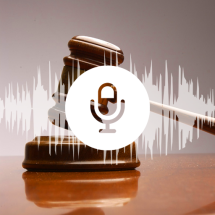Dallas – Collin County Theft Charge Attorney
Charges of theft are very serious criminal offenses that must be defended properly by an experienced criminal defense attorney who the ramifications and stigma which can result from being charged with a crime of theft, which is classified as a “crime of moral turpitude.” Theft charges often stem from people experiencing difficult financial situations throughout their life. Facing with sometimes very depressing financial hardships, often individuals resort to doing things that wouldn’t ordinarily do. When someone is charged with theft, the individual is suspected of taking some form of property that another person with the intention of permanently depriving the owner of that property. Theft crimes can include a variety of different charges including, writing a bad check, identity theft, burglary, petty theft, fraud, embezzlement, and shoplifting are all examples of typical theft crimes.
The penalties for each vary significantly based on many factors, including what classification the charge is. Theft crimes can be charged as either a misdemeanor or a felony offense, and usually, it is based on the value of the property allegedly stolen, and also factors that are taken into effect is whether or not force was used to gain access to the property.
A charge of simple misdemeanor theft would involve facts where it is alleged that an individual engaged to deprive in an unlawful manner possession of someone else’s property or money without their consent. The distinction between whether theft is a misdemeanor or a felony is dependent on the value of the cash or property stolen. Many states classify charges of theft up to $500 as a misdemeanor offense, with larger amounts charged as a felony. In Texas, the value of the property is less than other states but is always something that could be argued if an individual or entity possibly embellishes or states that the value was more than it actually was worth. Often, especially with people (as opposed to businesses), the value or worth to someone is significantly less than it actually in reality is.
The crime of theft in Texas is codified under 31.03 of the Texas Penal Code. Generally speaking, a crime of theft in Texas (and the associated range of punishment) is one usually, in simplistic terms, just boils down to whether or not an individual intentionally (and not inadvertently) took something of value from another person without their consent.
⇒ Chapter 31.03 of the Texas Penal Code, states, in relevant part, that the crime of theft is committed when:
(a) A person commits unlawfully appropriates property with intent to deprive the owner of the value or worth the item; (b) Appropriation of property is unlawful if:
(1) it is without the owner’s effective consent;
(2) the property is stolen and the actor appropriates the property knowing it was stolen by another; or
(3) property in the custody of any law enforcement agency was explicitly represented by any law enforcement agent to the actor as being stolen and the actor appropriates the property believing it was stolen by another.
Generally speaking, the elements of theft only can exist when a person unlawfully appropriates property or something of value not their own, without the effective consent of whoever had rightful ownership of said property, and did so with the specific and overt intention of permanently depriving the owner of their right to its possession.
A conviction of theft can involve a wide range of possible penalties, and also can include differing collateral consequences relating to the nature of the offense. Most charges involving property thefts are deemed to be “crimes of moral turpitude.” Any crimes of moral turpitude is something to be taken very seriously, because it can negatively affect job employment for years to come, it can especially have very negative repercussions for those who are not citizens of the United States and wish to stay here by applying for legal immigration status through a visa or a green card, etc.
There is a myriad of different options and routes which may be employed when trying to mount a successful defense. It is paramount to contact an experienced attorney who you believe will tenaciously pursue a vigorous defense on your behalf. Regardless, it is important to take all theft charges very seriously, because even a minor theft conviction can have a devastating and negative impact on your life now and your future both now and in the future. A misdemeanor theft conviction could totally alter and change your current and future employment for the rest of your life. Many companies and jobs have policies where they will not hire a person who has something in their background that may question their honesty and ability to be trustworthy. These negative implications can last the rest of your life and can come up and follow you for a long time in the future, even if you have put it behind you.
In Texas, theft charges are classified and filed depending upon the value of the property. The charge can be either filed as either a felony or misdemeanor offense, depending upon the value of the property alleged to have been stolen. Article 31.03 of the Texas Penal Code lists the specific monetary amounts and the associated classification for each. It was within the last couple of years the Texas Legislature actually increased the amount for each offense, whereas they used to be at a lower level than they currently are. Now, pursuant to Article 31.03 of the Texas Penal Code:
- If the value of the property in question is less than $100, the charge will likely be classified as a Class C misdemeanor offense;
- If the value of the property in question is worth $100 (or more) but less than $750, it will likely be classified as a Class B misdemeanor offense;
- If the property in question is worth at least $750 or more, but less than $2,500, the charge will likely be classified as Class A misdemeanor offense;
- Theft can be charged as a state jail felony offense if the property in question has a value greater than $2,500 (or more) but less than $30,000;
- If the property in question is valued at $150,000 (or more) but less than $300,000, it will likely be classified as a 2nd-degree felony offense;
- Theft can be charged as 1st-degree felony offense if the overall value of the property is worth $300,000 (or more).
Contact a Texas Theft Defense Attorney
Contact Attorney Carl David Ceder today for a free and confidential legal review of your case and a full understanding of Texas penalties for all types of charges of theft. It is imperative you make the right decision about hiring the right defense lawyer for your case. Your freedom and your financial independence depend on it.
It is imperative that you seek the services of a skilled, experienced, and knowledgeable Texas shoplifting attorney to help you handle your case. If you have been accused of theft in Texas, The Ceder Law Firm can help. Contact us at any time for assistance at 214.702.CARL(2275) or 469.2000.DWI(394). You can also e-mail Carl directly at [email protected]; or to the office for general inquiries at [email protected]. Phones should be answered 24 hours a day/7 days a week for immediate and prompt assistance.





















